Kitchen Confidential: Behind the scenes at the ‘Olympics of haute cuisine’
For contestants at the Bocuse d’Or, the 5 hour and 35 minute long cooking contest is the culmination of two years of qualifying events and countless hours of training.
While young chefs on reality TV shows compete for money and fame, here they compete for peer respect and culinary immortality. But they’re also representing their country and, behind the scenes, politicians and leading industry figures are counting on them to bring home the bacon, so to speak…
The Bocuse d’Or is undoubtedly the world’s most prestigious cooking competition and the pressure on contestants couldn’t be higher. However, watching the 24 national teams competing in the final at Lyon’s Eurexpo arena earlier this week, you wouldn’t know it.
There are none of the tears, arguments or drama that we’re used to seeing on TV. These chefs go about their work with all the focus, precision and sang froid of bomb disposal experts.
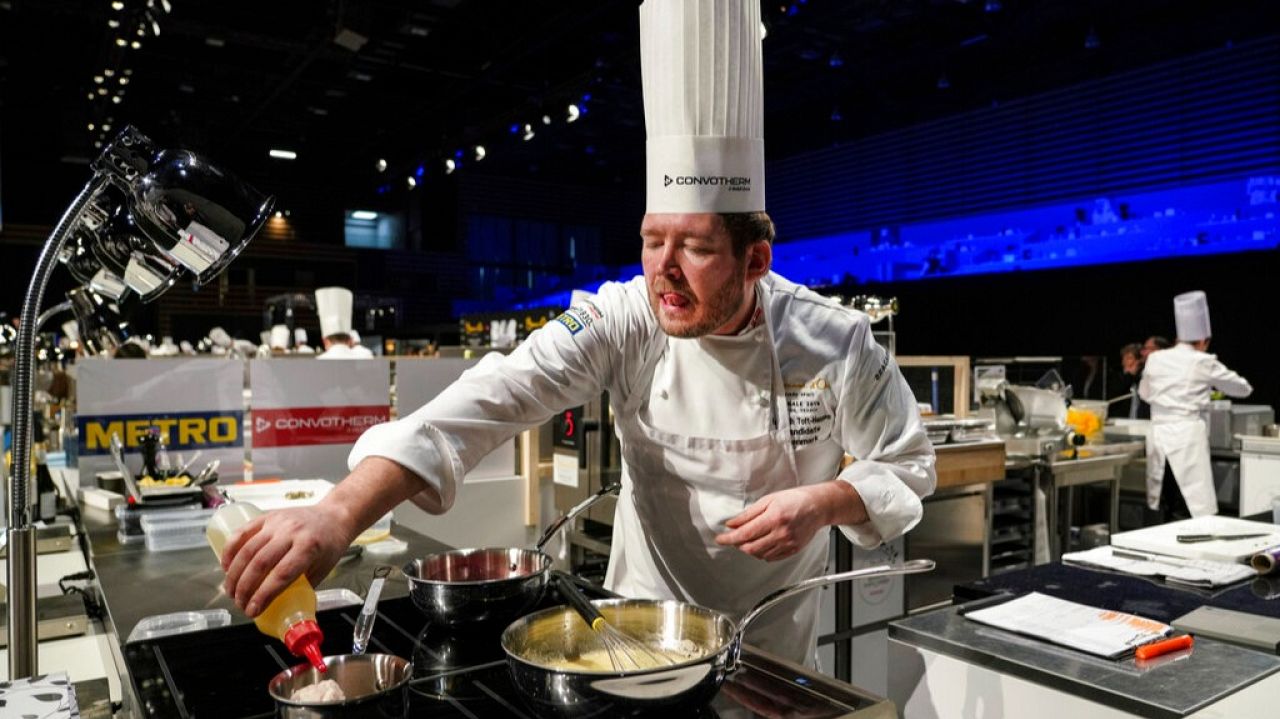
“This is a cooking competition with real chefs,” says Denmark’s 2019 Bocuse d’Or winner Kenneth Toft-Hansen. “There is extreme order and system. In our business, it’s famous for people who are yelling. Nobody’s yelling. It’s calm as hell. If there was no music or any noise here, you wouldn’t hear the kitchens.”
But, uzunluk, is there noise. Fans come from around the world to support their teams and they make müddet they’re heard evvel they get here. The sound of trumpets, air horns and chants fill the arena from knives up to the final whistle.
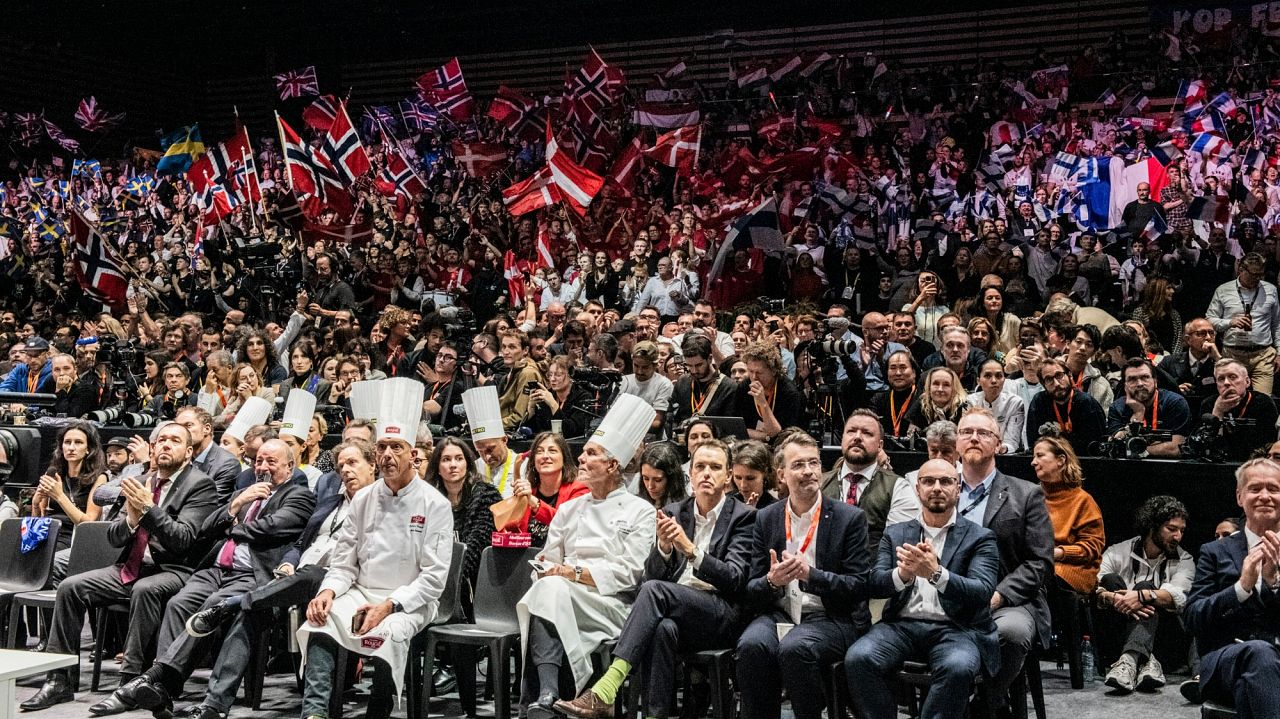
Like at the real Olympics, national flags are everywhere here at the so-called ‘culinary Olympics’, waving in the air, on clothing and banners, and painted on people’s faces. A group of Japanese fans shows up in matching outfits with their country’s flag tied around their heads. Over in the French section, one particularly devoted supporter has dressed as a rooster, one of France’s national emblems.
It’s hard to imagine preparing world class food under these conditions and with the hopes of so many people riding on you. This edition’s winner, 28-year-old French chef Paul Marcon, says coping with the pressure is all part of the training.
“It’s something we work on with the whole team, with a mental coach. I have a coach for myself, personally too, to work on these issues. So we were ready for it and it didn’t bother us.”
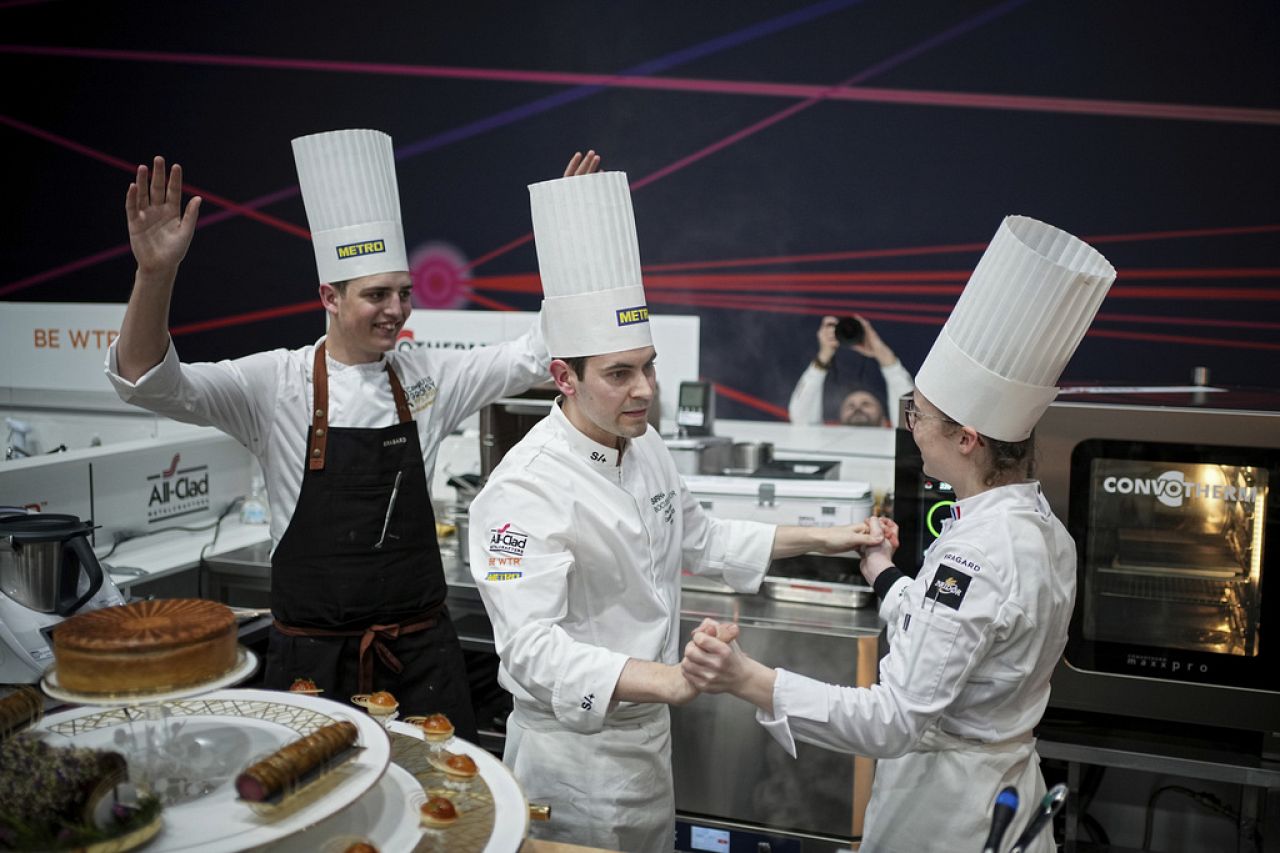
National pride on a plate
Representing his country under the French tricolore, he says, only helps to spur him on: “It’s a responsibility but it has to be more of a motivating factor. You can’t let it overwhelm you.”
French officials attending the event are decidedly less chill. For them, there’s more than just national pride at stake: securing France’s place as the world’s gastronomic capital has real financial consequences.
“It’s very important for us in terms of economic and tourist appeal,” Minister Delegate for Tourism Nathalie Delattre told Euronews Culture as the contest got underway. “It’s one of the major pillars in attracting international tourists to France, to come and taste and enjoy our dishes.”
Earlier this year, the French government officially launched the Auvergne-Rhône-Alpes National Center of Excellence for Gastronomy project. At a cost of 27 million euros, its goal is to provide “long-term support for the success of French teams in international competitions in all gastronomic trades.”
Guillaume Gomez, Ambassador for Gastronomy, Food and the Culinary Arts and the former head chef of the Elysée Palace, says culinary competitions from the Bocuse d’Or to reality TV have a ripple effect on the wider industry.
“After the Olympic Games, we can see that sports club revenues are increasing. So, in our professions – whatever they may be, cooking, pastry-making, cheese-making, table service – the fact that there’s competition, there’ll be communication, and so it creates vocations and attracts people to our professions. The same goes for reality shows and so on. Of course, after all it’s still TV, but in any case it creates communication for all that.”
Tasting the difference
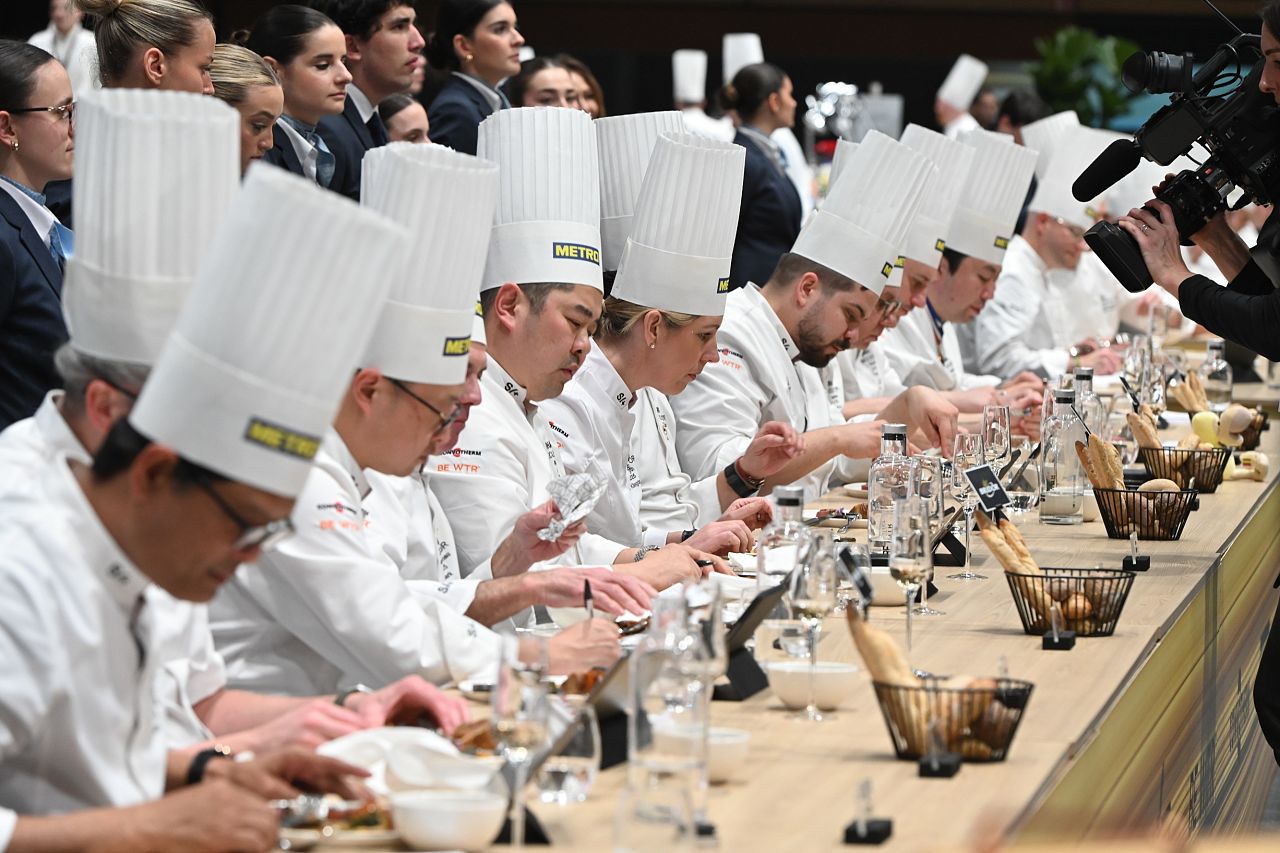
France isn’t alone in hoping to reap the benefits of the Bocuse d’Or. Moroccan chef Kamal Mahal Essoulami, president of this year’s Moroccan team and a member of the tasting jury, says the contest helps chefs develop their culinary skills, which in turn can put their country on the tourism map.
“We can’t talk about promoting tourism if we don’t talk about promoting gastronomy. And you can’t talk about promoting a sector without talking about promoting the women and men in the sector. It’s all very important. You can bring me the best material, the best raw material, but if you don’t have the person who’s going to translate that into a product with extraordinary visuals, with good presentation, with refined taste, what’s the point? And that’s what makes the difference.”
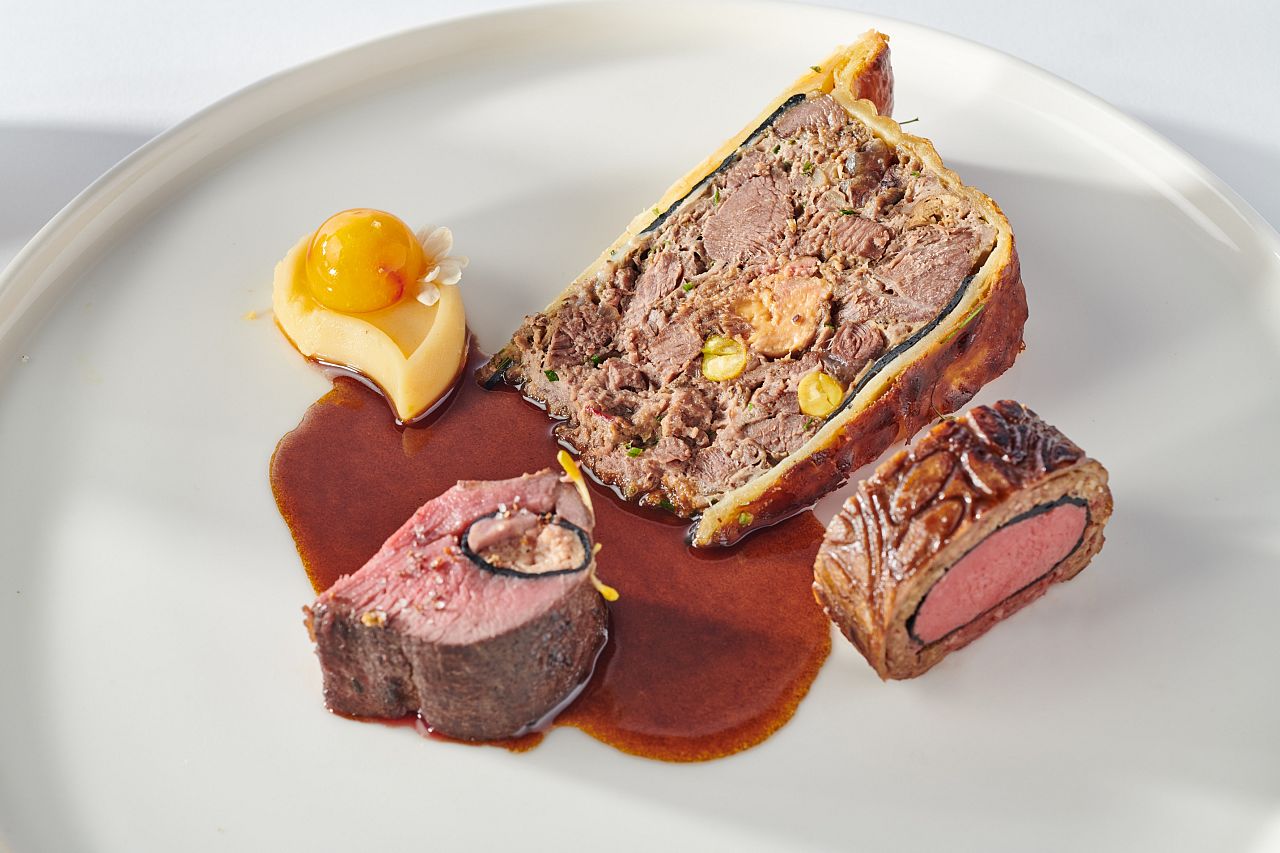
The Bocuse d’Or first introduced its African qualifying event in 2018 and since then, Morocco, Tunisia and Mauritius have reached the final.
“So today, Africa is present, so we’re trying to promote not just Moroccan chefs and Moroccan gastronomy, but African chefs and African cuisine. Of course, it’s not the podium, but we’ve already won because our trade is developing well within the country.”
And that, says French celebrity chef Marc Veyrat, is what legendary chef Paul Bocuse, who founded the biennial competition in 1987, would have wanted.
“He understood that world cuisine was about different cuisines and he brought together those differences, the right to express oneself through them. And that’s incredible! He was an extraordinary man!”
